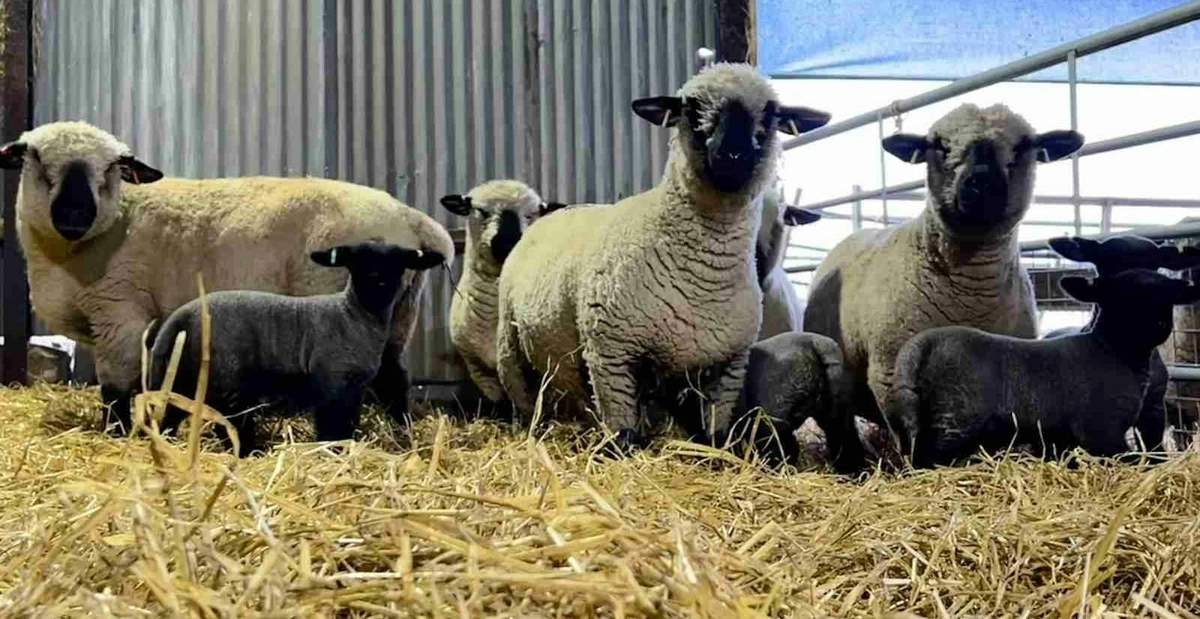Harnessing Genomics to Improve Sheep Breeding: Key Findings

As the agricultural industry moves towards more sustainable and efficient practices, genomics is playing a crucial role in transforming sheep breeding. It’s not just about high-tech science—it’s about enabling farmers to breed better animals, reduce waste, and ultimately improve their profits. The Scottish red meat sector is already seeing the benefits of integrating genomics into breeding strategies, and the results are clear.
To further explore the impact of genomics, QMS has launched a new study in partnership with Signet Breeding Services focused on integrating genomic data and CT scanning to improve breeding decisions. This research examines the benefits of using genomic breeding values alongside phenotypic data to refine selection criteria for key traits such as muscle yield, growth rate, and carcass conformation. The study, conducted across several Scottish flocks, highlights how genomics can improve accuracy in genetic predictions and ultimately drive faster genetic gains. It also provides insights into how these technologies are helping farmers make more informed decisions, leading to greater profitability and reduced waste in commercial sheep systems.
Main Findings:
- Genomic accuracy is higher than using phenotypic data alone.
- Genomic breeding values can be applied even without phenotypic information, though they are most accurate when combined with it.
- Improved breeding value accuracy can increase profitability and reduce waste in commercial sheep systems.
By increasing the accuracy of genetic predictions, genomics allows for better breeding decisions. This leads to faster finishing times and improved carcass quality, which ultimately boosts margins for farmers. With the ability to track and enhance genetic potential more accurately, the industry is making great strides toward long-term sustainability.
Several Scottish farmers participated in the study and provided valuable insights into how genomics has transformed their breeding practices. Roy Macfarlane of West Lecropt has been using genomic data since 2012, when he began sending Hampshire Down lambs to the CT scanner sponsored by QMS. “C.T. Scanning massively increases our accuracy values on our Tup lambs, giving us confidence in our selection of rams. We aim to sell rams that produce fast finishing lambs with excellent grades, and we’ve had great feedback from producers that we are doing just that,” Roy shared. His focus on improving muscle yield and carcass shape, particularly in the hind quarter of his rams, has helped drive the success of his breeding programme.
Matt Drummond, who manages a Hampshire Down flock, has also seen significant benefits from using genomic data. Since the flock’s formation in 2018, the genetic merit has increased by about 4kg at scanning time, with an improvement in speed of finishing by about one week. “Genomics significantly increases the accuracy of performance data, allowing us to confidently select sheep within our pedigree flock to produce rams for our commercial mule flock. We aim to produce efficient, profitable prime lambs to the specific specifications needed to suit our farm and our dead weight buyer,” Matt explained. This focus on improving growth and carcass traits has been key in improving the farm’s efficiency and profitability.
For Scotch Lamb producers, embracing genomics means staying at the forefront of responsible, efficient, and high-performing livestock production. As the sector continues to innovate, these technologies will help ensure that sheep farming remains profitable and sustainable for years to come.
To learn more about the transformative power of genomics in sheep breeding, click here to read the full report.

Sign up for the latest news and views

 Quality Meat Scotland
Quality Meat Scotland4 Redheughs Rigg
Westpoint
South Gyle
Edinburgh EH12 9DQ
- Tel: +44 (0)131 510 7920
- Email: info@qmscotland.co.uk
Follow Us
- © Quality Meat Scotland 2026
- Terms & Conditions
- Accessibility Statement
- Privacy Policy
- Cookies
- Sitemap
Site by Art Department